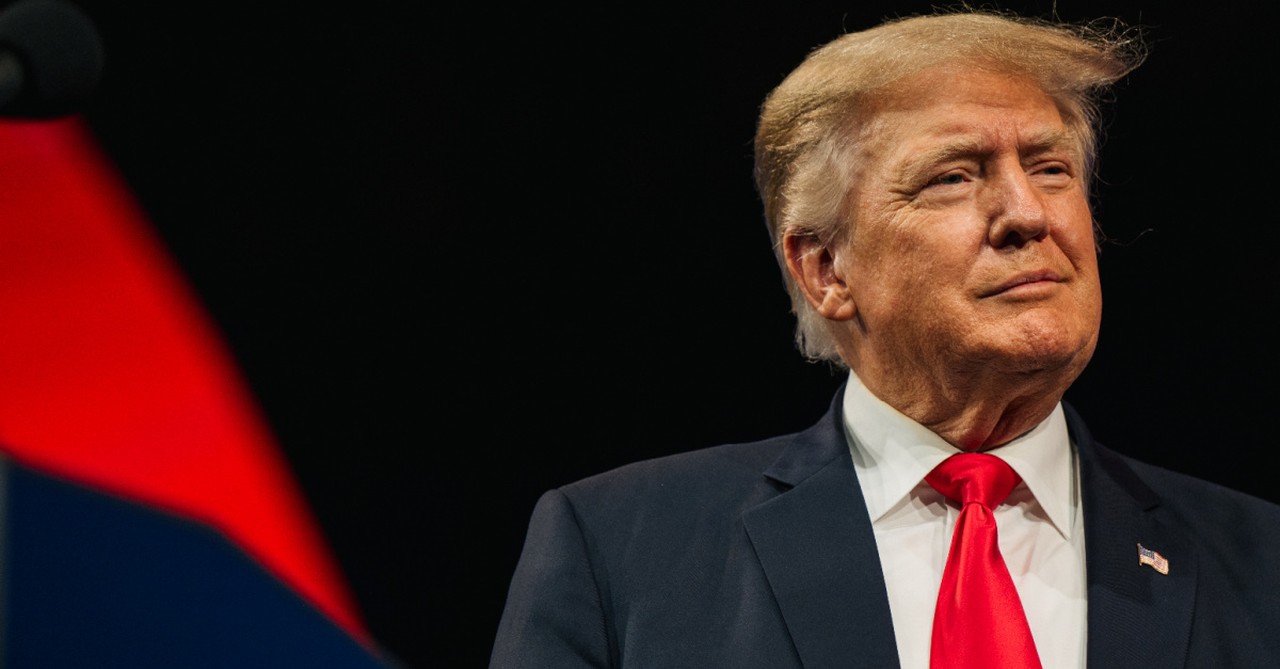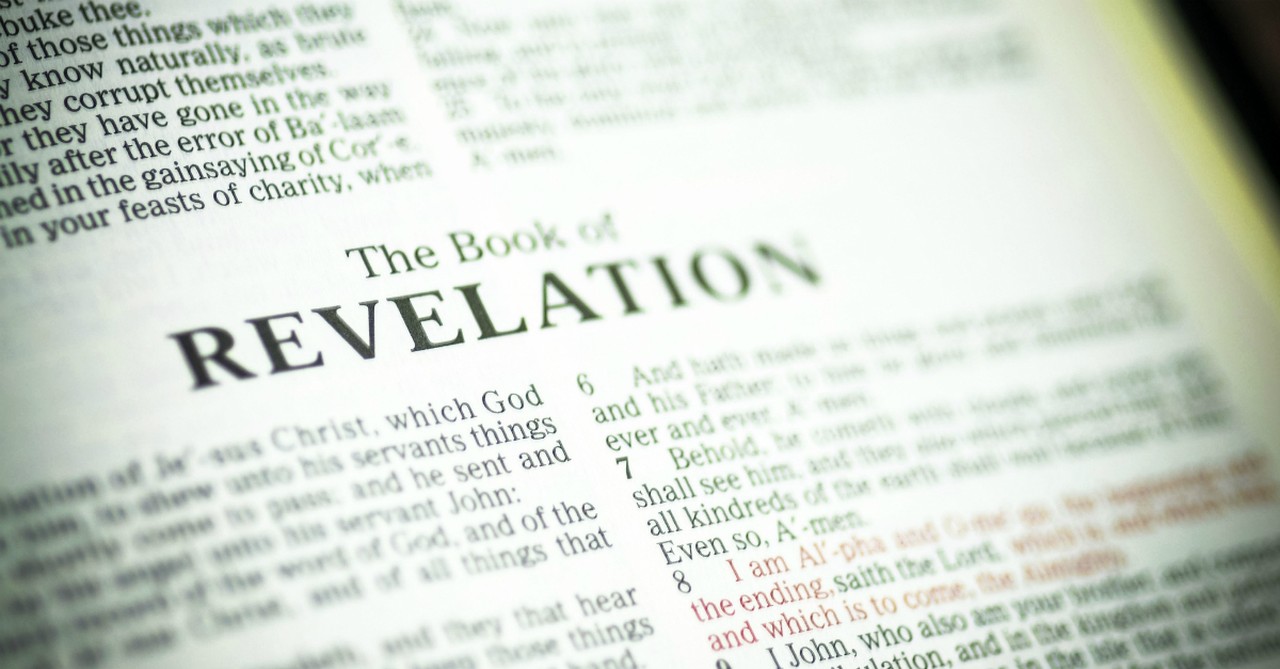
The book of Revelation describes a beast unlike any other rising from the sea, with ten horns, seven heads, and the power of a dragon. It commands global influence, speaks blasphemies, and wages war against God’s people. Throughout history, people have compared figures like Nero, Napoleon, and even modern politicians to this apocalyptic figure. Recently, some have drawn parallels between the beast and President Donald Trump. But do these comparisons truly hold up? While Trump has been a polarizing leader with immense influence, does he align with the biblical description of the beast, or is this a case of political speculation rather than prophecy?
Who Is the Beast?
Revelation 13,17 and 19 provide multiple descriptions of the beast. Revelation 13:1-8 provides the most detailed description: The beast rises from the sea, possessing ten horns and seven heads, and the dragon (Satan) empowers it. It possesses characteristics of a leopard, a bear, and a lion, symbolizing a blend of different, powerful entities. The beast demands worship, speaks blasphemies, and wages war against the saints. In Revelation 17, the beast is associated with a harlot representing a corrupt world system, and it ultimately meets its destruction at the hands of Christ in Revelation 19.
Photo Credit: ©Getty Images/Brandon Bell/Staff
Parallels between Trump and the Beast

Parallels between Trump and the Beast
SLIDE 1 OF 4
Some people have drawn parallels between various political leaders and the beast based on specific characteristics.
1. Charismatic Influence
The beast commands worldwide awe and allegiance (Revelation 13:3-4). As a charismatic leader with a devoted following, Trump’s rallies, his strong political base, and the messianic devotion of some supporters have led critics to compare him to a figure demanding allegiance.
2. Authoritarian Tendencies
The beast wields unchecked power, enforcing its will globally. Some see Trump as seeking excessive power, pointing to his attacks on the media, claims of a “rigged” election, and efforts to challenge democratic norms as authoritarian.
3. Boastful and Blasphemous Speech
Revelation 13:5 states that the beast speaks “great things and blasphemies.” Commentators have cited Trump’s unfiltered, often controversial remarks—including claims that only he could fix America’s problems or his statement that he’s “the chosen one” in trade—as examples of this kind of boastful rhetoric.
4. Economic Influence
Revelation 13:17 speaks of an economic system tied to the beast, where no one can buy or sell without its mark. Some have linked this to Trump’s influence over global markets, trade deals, and economic policies, though the comparison is speculative.
Photo Credit: ©GettyImages/dtimiraos
Key Conflicts with the Analogy

Key Conflicts with the Analogy
SLIDE 2 OF 4
Despite these parallels, many characteristics of the beast do not align with Trump or any modern political figure:
1. Worship of God
The beast demands worship as a deity (Revelation 13:8). Trump has never claimed divinity or required religious worship. Trump has not required religious worship nor claimed divine status in a way that aligns with Revelation’s prophecy. While some supporters admire him deeply, this is far from the forced, universal worship described in Revelation.
2. Supernatural Empowerment
Satan directly empowers the beast and performs supernatural wonders (Revelation 13:2, 13-14). While Trump is a controversial figure, there is no evidence of supernatural power at work, making a literal fulfillment of this prophecy untrue.
3. Global Rule
The beast has global, not just national, rule, whereas Trump, as a U.S. president, operates within a constitutional system. The beast has dominion over all nations, whereas Trump’s influence, though significant, was primarily within the United States. Other world leaders opposed him, contradicting the absolute, worldwide rule of the beast.
4. Persecution of Believers
The beast actively makes war against the saints (Revelation 13:7). Trump enjoyed broad support from evangelical Christians and promoted policies that many believers endorsed, such as religious liberty protections and pro-life measures.
5. Eschatological Defeat
The beast meets his end through divine intervention (Revelation 19:20). Like any political leader, Trump is subject to elections, term limits, and political shifts—not an apocalyptic battle against Christ.
Ultimately, interpretations of the beast and its modern parallels depend on theological and political perspectives. Many Christian scholars view the beast as a future figure or system rather than any specific individual in recent history.
Photo Credit: ©Getty Images/carterdayne
Evaluating Trump’s Values in Light of Scripture

Evaluating Trump’s Values in Light of Scripture
SLIDE 3 OF 4
While Trump has been a divisive figure, his public statements and policies often align with certain biblical values. At the recent National Prayer Breakfast, President Trump said,
“National unity is now returning to America and confidence and pride is soaring like never before. In everything we do my administration will be inspired by a strong pursuit of excellence and unrelenting success. We will not forget our country. We will not forget our Constitution. And we will not forget our God.”
1. Acknowledging God
In his inaugural address, Trump credited God for saving his life after an assassination attempt. At the Republican National Convention, he declared, “I stand before you in this arena only by the grace of Almighty God.”
2. Religious Freedom
Trump has signed executive orders to protect religious liberties and spoken against the weaponization of government against Christians. He continued to uphold the need for the nation to trust in God, “Let’s bring God back into our lives.”
3. Christian Heritage
At the National Prayer Breakfast, Trump emphasized America’s Christian foundations: “America is, and will always be, one nation under God.” Religious liberty is “part of the bedrock of American life.” He aims to root out anti-Christian bias.
4. Moral and Social Policies
His policies have supported traditional values, including the sanctity of life, the institution of marriage, and protections for religious organizations.
Trump has publicly expressed his deep regard for the Bible, calling it “THE book” and recognizing its significance for the heart and soul. His personal Bible, passed down through his family, holds special meaning as a connection to his Christian heritage. Underscoring the biblical principle of honoring God above all, he declared, “Americans kneel to God, and God alone.”
Photo Credit: ©Getty Images/stevanovicigor
The Broader Cultural Issue

The Broader Cultural Issue
SLIDE 4 OF 4
The real danger in today’s culture is political leaders and a society that drifts from biblical truth. Many who identify as Christians do not uphold the values found throughout Scripture. A culture devoid of God’s Word is prone to deception and moral decline.
For those who uphold biblical values, President Trump’s policies have aligned with several key principles rooted in Scripture. He has advocated for strong families (Joshua 24:15, Ephesians 5:25; 6:2) and upheld traditional marriage between one man and one woman, affirming God’s design for gender and marriage (Genesis 1:27; Matthew 19:4-6). His support for Israel reflects the biblical mandate to bless and stand with God’s chosen people (Genesis 12:3; Psalm 122:6). His pro-life stance aligns with the biblical sanctity of life, recognizing that every person is fearfully and wonderfully made by God (Psalm 139:13-16; Jeremiah 1:5). Furthermore, he has defended religious freedom, reinforcing America’s foundational commitment to worship without government interference (Galatians 5:1; Acts 5:29), and has actively opposed government overreach, recognizing the dangers of excessive control over faith and personal liberties (Isaiah 10:1-2; Romans 13:3-4) stating, “In American, we worship God, not the government.”
Finally, while Trump’s leadership style, rhetoric, and influence have led some to draw comparisons to the beast of Revelation, key elements of the biblical description don’t align. People have linked this prophecy to many historical figures—Nero, Napoleon, Hitler—but none fully match its characteristics. Rather than applying the prophecy to one leader, some scholars recognize the beast represents a future global system of power or a figure yet to emerge.
In evaluating any political leader, the question should not simply be whether they resemble the beast but whether their values align with God’s principles. Trump’s presidency, while controversial, has included a strong emphasis on faith, religious freedom, and traditional values, a complete about-face from the previous administration. Scripture affirms that God raises leaders and removes them according to His will (Daniel 2:21), reminding believers that their ultimate hope is not in any earthly ruler but in Christ, who will one day establish His kingdom of righteousness and truth (Revelation 11:15).
Photo Credit: ©Getty Images/Drew Angerer/Staff


Originally published February 20, 2025.







